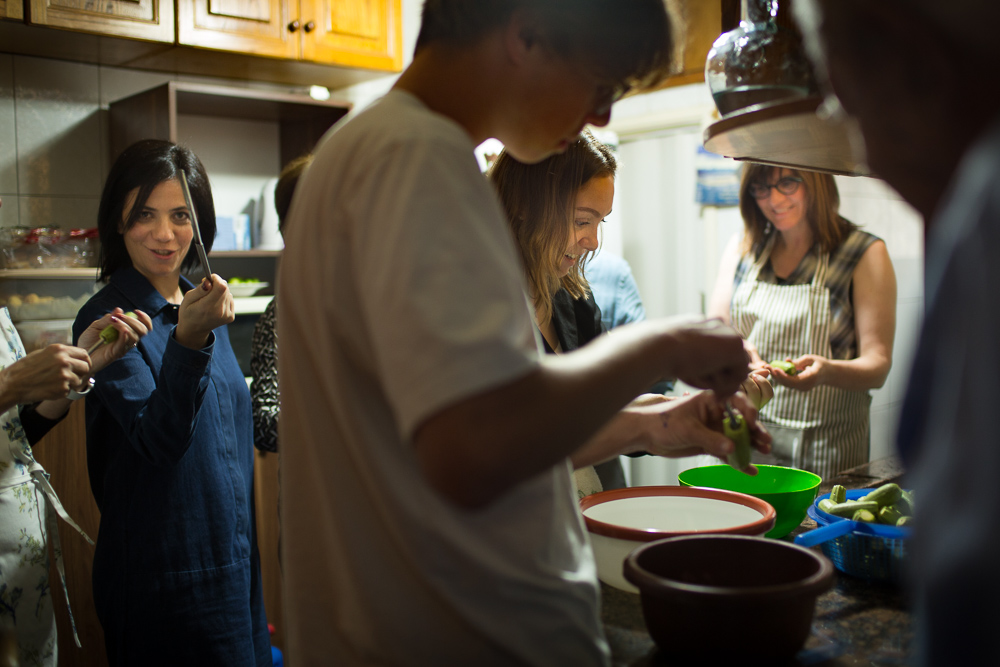
Suddenly a kitchen in Beirut felt a lot like Italy
To add another layer of adventure to our trip to Beirut we cooked with a family in their home, found through a service called Traveling Spoon. It turned out to be one of the best things we did on the trip.
In the outskirts of Beirut we arrived at an unassuming apartment building. Tania, our hostess, welcomed us and showed us into the living room where we met her mom, Joelle, and her brother. We all chatted for about an hour—I was starting to wonder whether I had forgotten to check the “cooking class” box on the form—when Tania asked us what we wanted to make and presented us with an array of choices. We decided on a range of things and then set to work in the small kitchen.
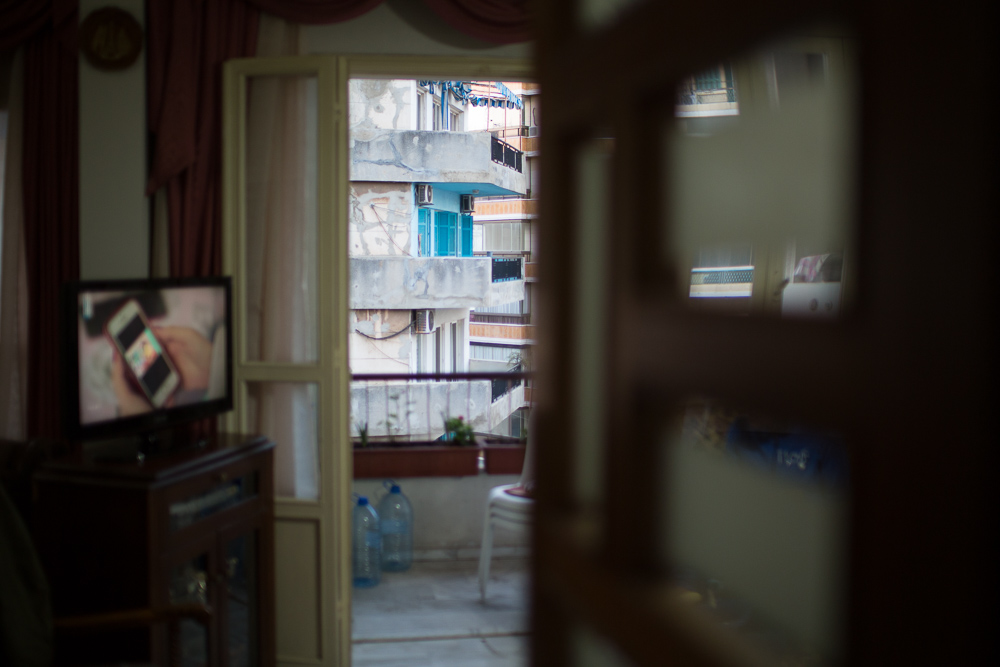
Learning to make a bunch of Lebanese classics was a blast, but what really make the evening for us was the warmth and wit of the family, with Tania and her mom ruthlessly teasing each other, her father, Boutros, arriving from working in his very large garden further outside of town and pouring rounds of homemade arak (an anise-based liquor), and various family members and friends coming and going.
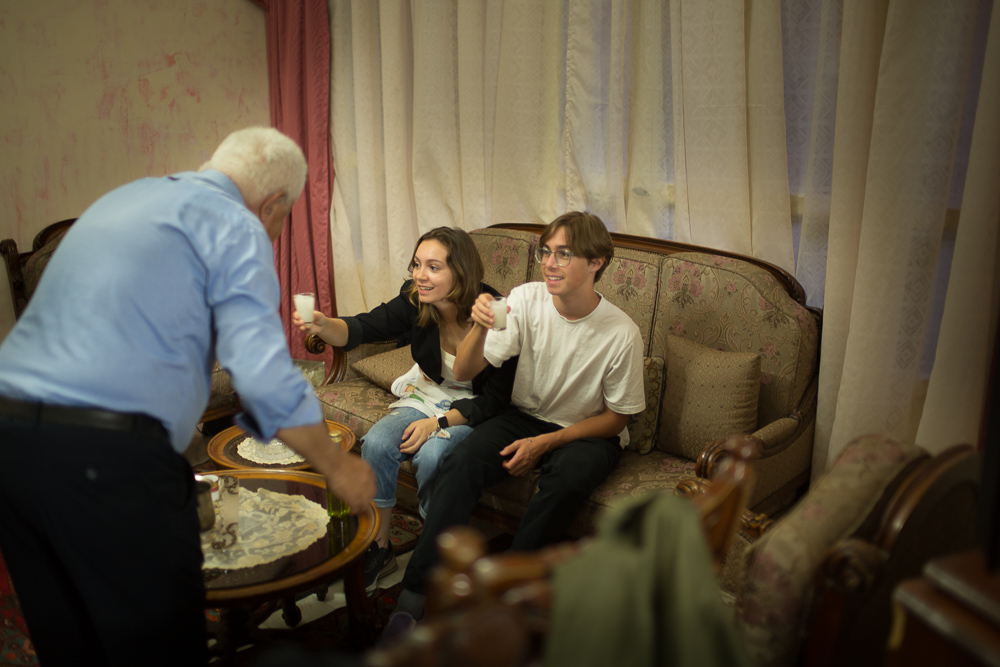
In the middle of cooking the phone rings and Tania’s two-year-old niece had managed to video call her grandmother without her family’s knowledge. All cooking stopped while everyone chatted with the two year old. When Tania’s brother realized what had happened and came on the screen, looking slightly disheveled, Tania tells him he looks like a terrorist. At this point Sebastian delivers his highest compliment—that the whole thing—the frenzied, attentive cooking, the warm and funny family, even the apartment and kitchen, are exactly like what he loves about Italy.
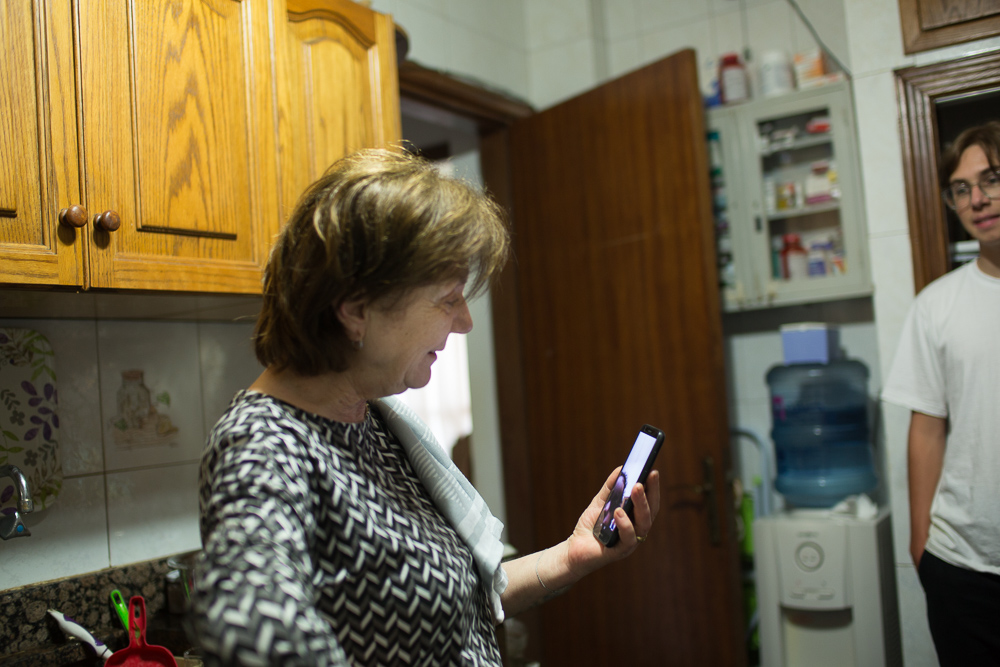
We learned to make the Lebanese salads tabbouleh and fattoush, stuffed grape leaves (warak enab), hummus, baba ganoush, stuffed zucchini, and two potato dishes, among other things, but my favorite was chicken served over rice. It was different than anything else I’ve had and incorporated some new-to-me ways of using spices and techniques, all very easy. We made it last night, with Tania’s help answering last minute questions over WhatsApp while on the exercise bike at the gym, and I think I have the recipe nailed.
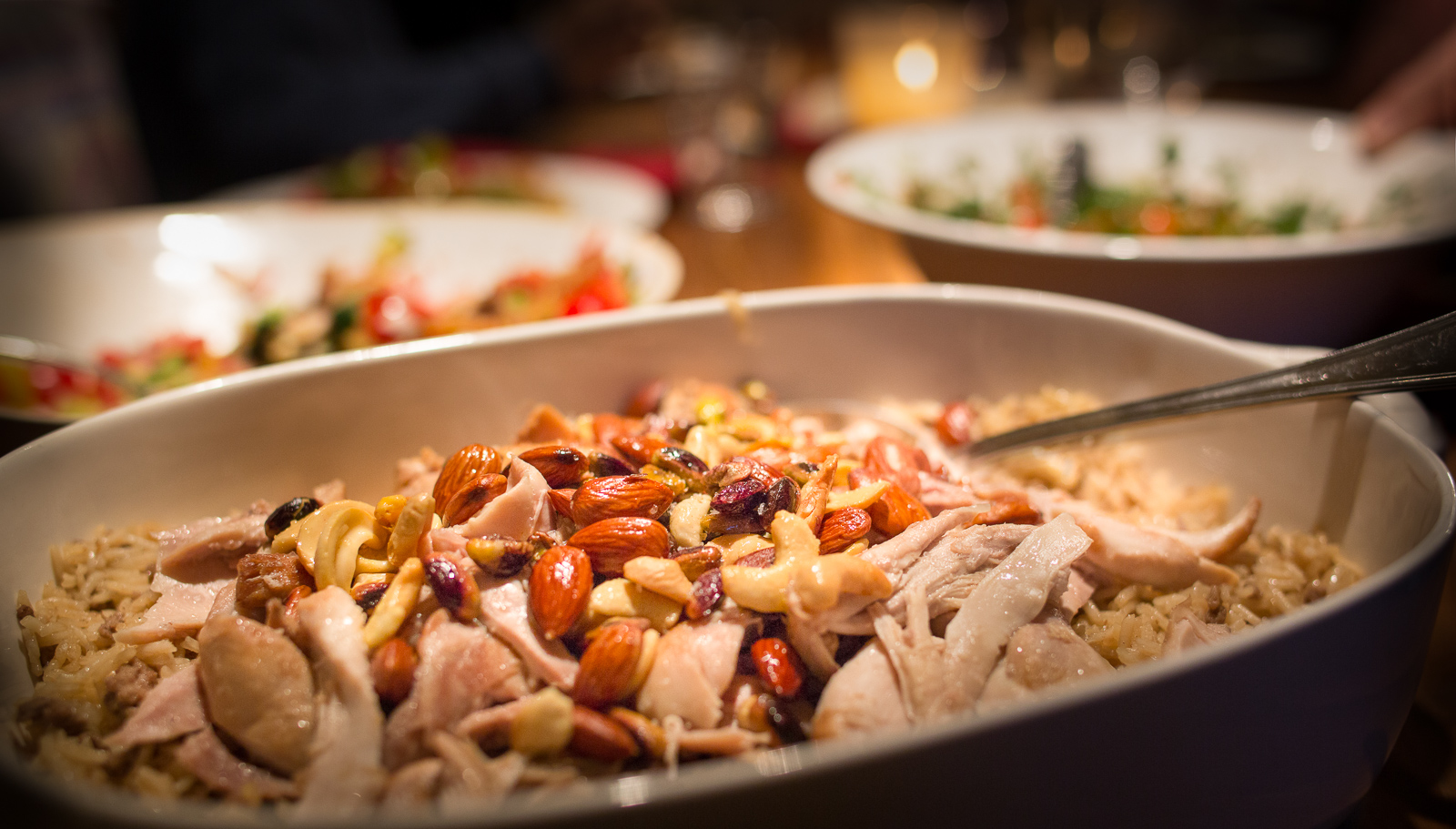
Tania’s Lebanese Chicken—Rez 3a djej—and the “3” is not a typo:
In a large pan heat some olive oil and saute an onion, three cloves of chopped garlic, a large bay leaf, two cinnamon sticks, and about 5 each of whole peppercorns, allspice pods, and cardamom seeds. Brown slowly, until the onions are really soft. Put in a whole cut up chicken and brown well. Add water until the chicken is just covered, put a lid on the pot, and cook over low heat until the chicken is completely done. (Tania used a pressure cooker to speed this up.) We had largely dark meat and this took about 30-45 minutes on the stove. Remove the chicken to cool and retain the liquid the chicken was cooked in.
For the rice saute a mix of nuts (we used cashews, peeled almonds, and pistachios) with a good amount of oil and butter. After the nuts are toasted drain them in a sieve and retain the cooking oil and butter in a large saucepan. Use the nut infused oil as the base to brown two onions, and ground beef (about 1/2 pound). Measure the amount of long-grained rice you want to use—you will later add twice the amount of liquid—and rinse the rice well to get it to absorb some water. Add the uncooked rice to the mixture which is browning along with salt and ground pepper to toast the rice slightly. Add cooking liquid from the chicken twice the quantity of uncooked rice, cover and cook on low heat until rice is soft.
Remove the chicken from the bones and shred.
To serve place the rice in a large bowl and layer over the chicken pieces. Add the nuts on top to garnish.
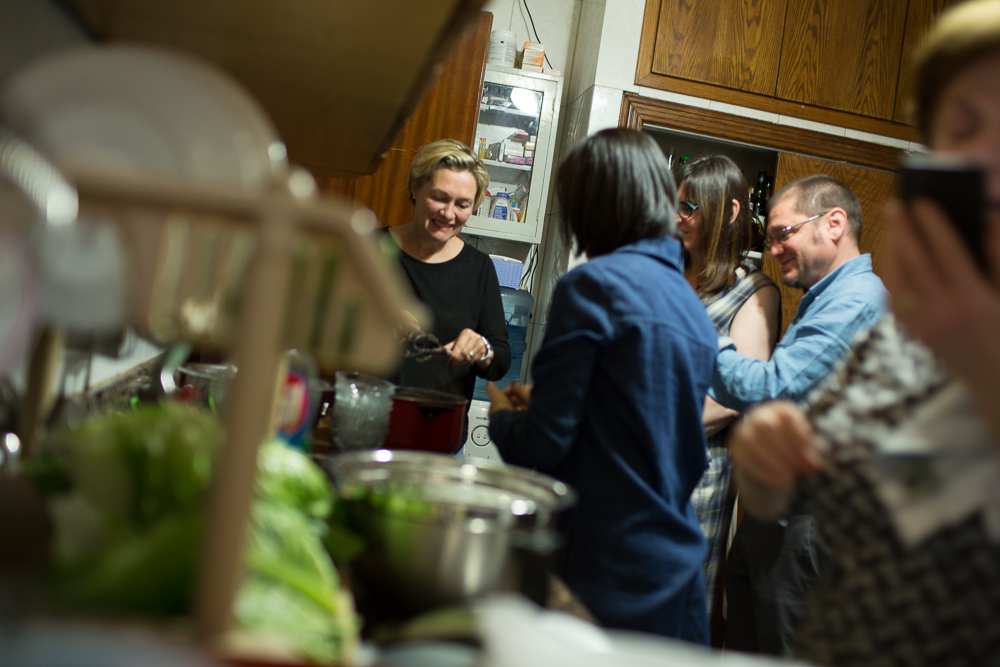
Other Lebanese cooking hints from our evening:
— Tania’s mom makes a pepper spice mix that is used frequently. It’s a ratio of 2:1 allspice pods to peppercorns, plus a cinnamon stick, ground fine in a spice grinder.
— The secret to making great tabbouleh is getting the size of all the vegetables (parsley, onion, tomato, mint) very, very small. It’s particularly hard with the parsley, so Tania rolled it into very tight bunches and julienned with a knife into the thinnest possible strips. Don’t cut the parsley more than once as you don’t want to mush it. When everything is cut add a good splash of lemon juice, olive oil, the pepper mix, and salt. (Watching I was amazed at how generous the amounts were of these last three things.) Add some uncooked bulgur wheat for texture.
— Fattoush includes cucumber, lettuce, tomato, onion, green pepper, and radish, and is dressed with sumac, pomegranate molasses, mint, salt, and pepper. Make sure that all the vegetables are cut distinctively larger than for tabbouleh so that there is a real differentiation. Add bitesize torn pieces of thin toasted pita at the end to blend with everything else and soak up the juices.
— Hummus is simple. Soak the chickpeas overnight, then boil them until soft. Leave in a little cooking liquid when they are pureed in a food processor. Add tahini, a big splash of lemon juice, and salt. To serve place in a shallow bowl and make a channel to pour over olive oil. For a nice decoration take a fork and dip into powdered hot pepper to leave an imprint on the edges.
— The trick for baba ganoush is in how the eggplants are cooked. Tania’s family roasts them directly over the gas flame on the stovetop, turning frequently, until charred on the outside and totally soft inside. It takes about 15 minutes, and they pierce the skin of the eggplant in several places before cooking so that it doesn’t explode. When mushy let cool, then peel under cold water. Puree the insides with tahini, lemon juice, and salt. This method of cooking the eggplants gives the whole dish a really nice smoky flavor.
— The Lebanese use sugar water frequently, particularly poured over desserts. Tania makes her own with 2:1 ratio of sugar to water heated to melt the sugar, then adding a good splash of lemon juice, orange blossom water, and some rose water.






No Comments